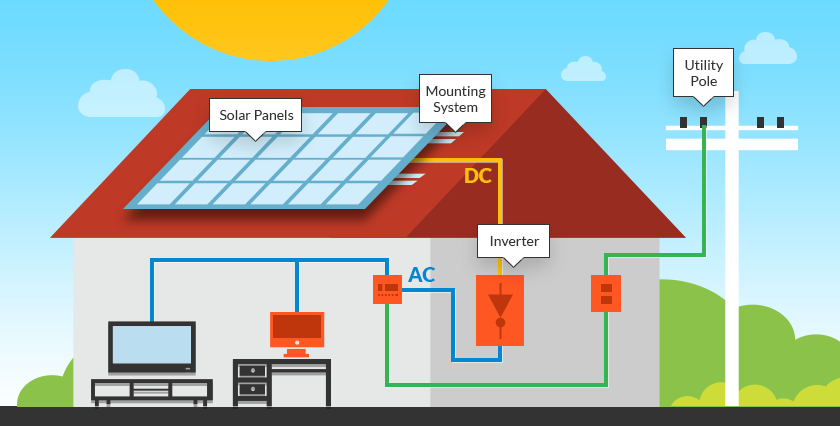How To Power a House With Solar Energy | The Ultimate Guide For Powering Your House With Solar Panels
Introduction

As the demand for renewable energy grows, more homeowners are considering the option of installing solar panels to power their homes. However, not everyone can afford the upfront costs associated with buying solar panels. This has led to the rise of leased solar panels, where homeowners can enjoy the benefits of solar energy without the high initial investment. In this blog article, we will explore the implications of buying a home with leased solar panels and discuss their impact on the buying process.
Understanding Leased Solar Panels
Leased solar panels involve an agreement between the homeowner and a solar panel provider. The provider installs and maintains the solar panels on the homeowner’s property, and in return, the homeowner pays a monthly lease fee. This allows homeowners to benefit from solar energy while avoiding the initial purchase and installation costs.
Benefits of Leased Solar Panels
One of the main advantages of leased solar panels is the cost savings. Homeowners can enjoy the benefits of solar energy without the significant upfront expenses. Additionally, leased solar panels often come with maintenance and warranty packages, relieving homeowners from the responsibility of repairs and replacements. Another benefit is the potential for lower electricity bills, as solar energy can offset a significant portion of a home’s energy consumption.
Buying a Home with Leased Solar Panels
When considering buying a home with leased solar panels, there are certain factors to keep in mind. Firstly, it is important to review the terms and conditions of the lease agreement. This includes understanding the lease duration, monthly lease fee, and any potential escalations. Additionally, homeowners should assess the performance of the solar panels and check if they are sufficient to meet their energy needs.
Impact on the Buying Process
Buying a home with leased solar panels can have both positive and negative impacts on the buying process. On one hand, leased solar panels can be an attractive feature for potential buyers, as they offer the benefits of renewable energy without the upfront costs. However, some buyers may be deterred by the lease agreement and prefer to own the solar panels outright. It is essential for buyers to thoroughly review the lease agreement and consider the long-term financial implications.

Conclusion
Leased solar panels provide homeowners with an opportunity to embrace renewable energy without the initial investment. However, when it comes to buying a home with leased solar panels, careful consideration is necessary to fully understand the terms and conditions of the lease agreement. Buyers should weigh the benefits and drawbacks to make an informed decision that aligns with their long-term goals.
FAQs: How to power a house with solar energy
How Much Energy Is Enough to Power a Home?
It depends on the size and type of home, but on average, a home would need about 10,000 kWh of energy per year.
A smaller, more energy-efficient home will require less energy than a larger, less efficient home. The average American household consumes about 10,000 kWh of electricity per year. This breaks down to about 875 kWh per month. Your electric utility company can also help you find ways to conserve energy and save money on your monthly electric bill.
How much solar power is needed to run an average home?
It depends on the size of the home, but generally speaking, a home would need about 5-10 kWh of solar power to run daily.
Do You Really Save Money With Solar Panels?
In a typical home, the energy bill is typically at least $200 per month. With solar panels installed on your roof, you can save up to 80% of that amount each year.
How many solar panels and batteries are needed to power a house?
The number of solar panels and batteries needed to power a house varies based on the size and location of your home. The average American household needs about 7,000 Watts (W) per day to power their house. A solar panel can produce up to 240 watts (W) of electricity, so you would need about 2-3 panels and a battery bank with enough storage capacity.
